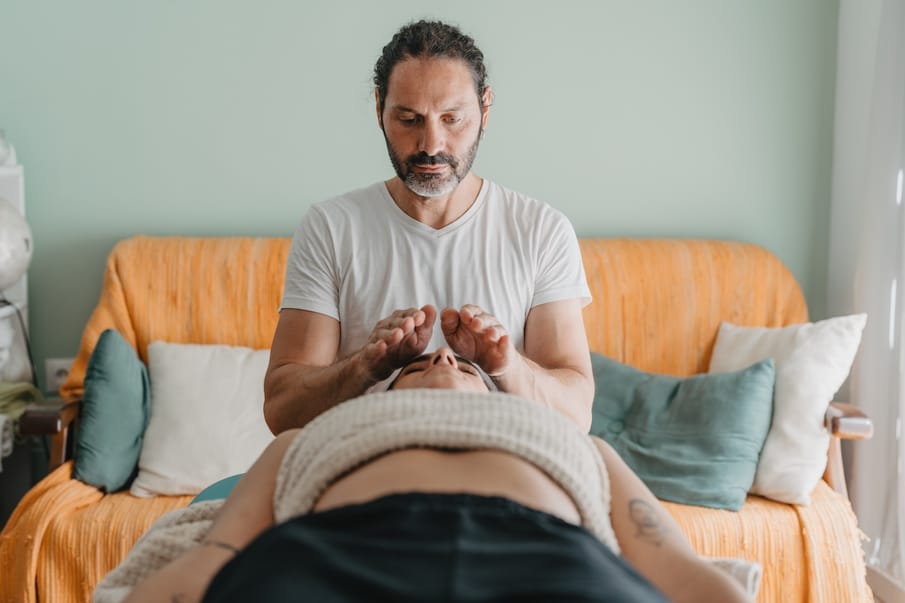Reiki master Pippa Moye explores the benefits of Reiki in helping to reduce stress
What is Reiki healing and how does it work?
Reiki means ‘universal life force energy’. We are made of this energy, it is all around us.
In Reiki healing, we are adjusting this energy to remove blockages, improve flow, and restore balance, boosting depleted areas and calming overactive ones.
The energy is guided by the pure intention to create change for the highest and greatest good. This intention comes from the heart, and is guided by the mind. Hands can be placed on, or near, the area to be healed to manipulate the energy. However, Reiki also works via meditation, and is highly effective at long distance, so it is not necessarily hands-on.
It’s believed that Reiki healing can be used to restore health, but it can also be used to cleanse a room, or send positive energy to an upcoming event. By removing blocked or negative energy, Reiki is both uplifting and calming.
How can stress impact our energy?
Stress depletes our energy. This is very noticeable when a person attends a Reiki session; their energy will feel flat, sluggish, and possibly cold. Stress also creates blockages in the aura, chakras, mind, and body. The cause of stress will determine where the blockage appears, e.g. money worries tend to show up in the base chakra, which governs physical security.
The aura should form a strong protective field, but it’s believed this can become weak or damaged due to physical illness or mental struggles. Holes in the aura can be detected, as well as shadowy energy attached to it caused by fear, hatred, or traumatic experiences.
Signs that your energy is being affected by stress could be that you get unexplained aches and pains, your mind is hyperactive or foggy, and everything feels like much harder work than it should do. You may feel emotionally low or physically exhausted for no apparent reason.
What can I expect in a Reiki session for stress relief?
First, the practitioner should ask you about the causes of stress, and what you need from the session. This will give them an idea about what they are looking for in your body and energy system, and how best to look after you. They may need to ground you at the start of the session to calm your nerves, and prepare you to receive the healing energy. They may also get you to take some deep breaths to relax. They should notice if you are holding tension in your body, and encourage you to ease those muscles. The healing session itself should be very relaxing. A strong dose of Reiki can make you fall asleep in a few minutes. Upon waking, you may feel as though you’ve been asleep for hours. After taking a few minutes to become fully present, you should feel lighter, clearer, and calmer, yet energised.
Pippa’s top tips for managing stress day-to-day
-
List everything you have to do and sort out the absolutely essential from the nice-to-haves – the Covey Quadrant is a great tool to help with this! Focus on the essentials and get to the rest later.
-
Avoid anything that starts with ‘I should’. This usually arises from guilt or obligations and is not aligned with what you really want. When you acknowledge your true wants, needs, and values, a lot of anxiety will melt away.
-
Don’t ignore your body. It’s easily done under stress, but everything feels worse when you’re tired, hungry, and dehydrated. Drink water, get some fresh air, and make time to eat and rest properly.
-
Think about what depletes you or energises you. Reduce your exposure to people and situations that are draining (including media exposure). Make more time for people, places and activities that you enjoy.


Comments